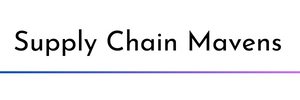Image by Mohamed Hassan from Pixabay
by Cynthia Kalina-Kaminsky
It seems each day highlights new, strategic supply chain risks such as potential: U.S. dockworkers strike, closure of the Strait of Hormuz, upcoming legal requirements, changing customer expectations of your sustainable operations, …
How should you prepare for what may, or may not, happen?
If you run a large, global supply chain, absolutely your top performance attribute will need to be protected – luckily you have the option for multiple teams to work various supply chain segment solutions (with a bit of AI for data collection on factors that could hinder your supply chain). You need to coordinate the gathering of solution options, aligning of what works well together to eliminate or minimize risk, and build the solution set (with appropriate approvals, of course).
If you run a small business supply chain, your top performance attribute will still require protection. You can still use AI to help. Unfortunately, you will probably not have the multi-team approach. However, you should still work cross-functionally throughout your organization to put together a solid approach on how to circumvent potential supply chain slowdowns/shutdowns.
All your work should eliminate, or minimize, underlying root causes that intensify your risk.
When talking with Nicolette Reed, VP at Evolutions in Business, EIB specializes in export requirements, Nicolette gave me 3 tips for supply chains to work on to eliminate risk from an export viewpoint.
Know the classification of your products
When you are ready to ship a product is not the right time to begin figuring out how it should be classified.
Instead, capture the product during the R&D stage, set up appropriate processes, prepare the database, and input required data and notes prior to starting the sales process.
Control Your Company’s Tech Data
Supply chains by their nature are leaky. Be careful no one inadvertently lets sensitive data out. Be even more careful that no one chooses to share your sensitive data.
There are methods to reduce the damage of a leak, including limiting the data any one individual can access. These need up front thought and build out – they don’t fall in place just because your supply chain data was compromised.
If you don’t know exactly where your data is, where it goes, or who can access it, now is the time to map out those exact answers. These data questions are especially important if you use AI.
Not only is your company at risk if a data breach occurs. Your supply chain is linked in many ways that could damage you, your partners, and even a country’s competitive economic advantage.
Make sure you have End User Statements
You know you need proper licensing and screening measures.
You also need a completed and signed End User Statement to protect your company in case your products end up in a sanctioned or embargoed country, or other places such as on a battlefield in the Ukraine.
Your preparation work for strategic risk elimination should have you figuring out how be agile and able to tiptoe around global problem areas by understanding how to best segment your supply chain to keep product flowing during various risk events.
Remember too, others have visibility into the output of your operations. Visibility is made so much easier with SM, cell phones, highly experienced hackers, etc. You don’t always want your supply chain to be headline news.
Don’t forget to provide your critical partners with insight as to what they will experience from your changes, how and why changes were made, and what the changes they may need to make to accommodate better export performance.
It’s all about export readiness before the risk appears.
Cynthia Kalina-Kaminsky is an ASCM Master SCOR instructor and consultant. She’s also a supply chain professional and will be teaching the upcoming SCOR-Framework workshop.


